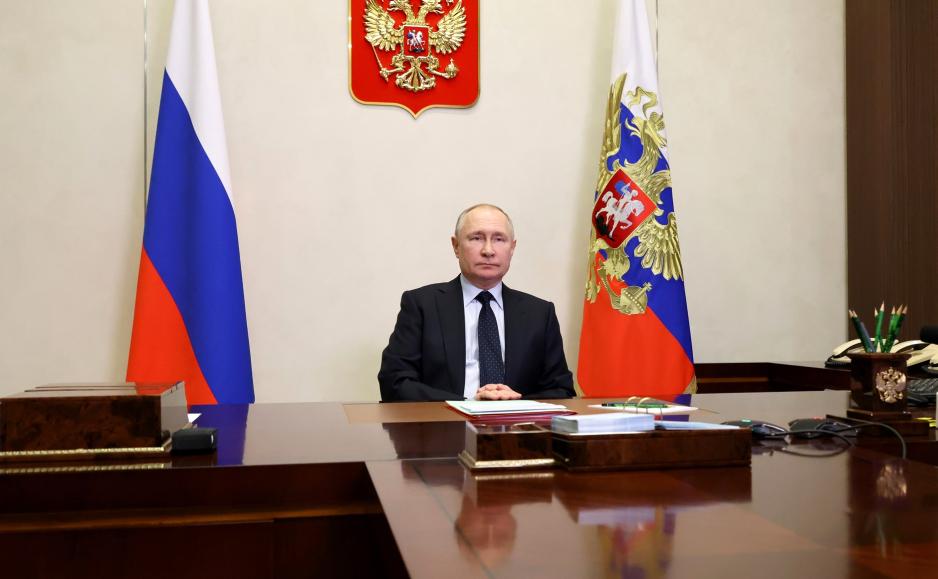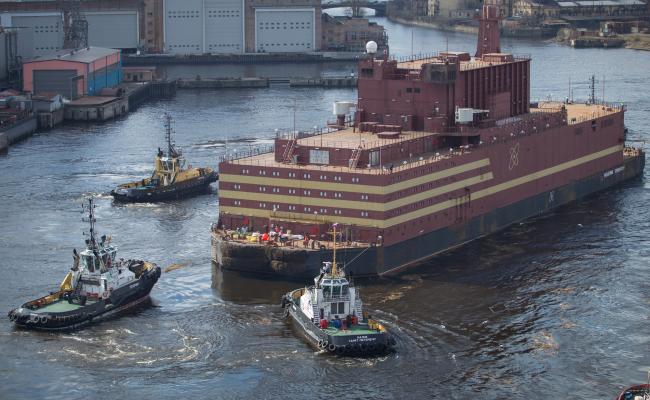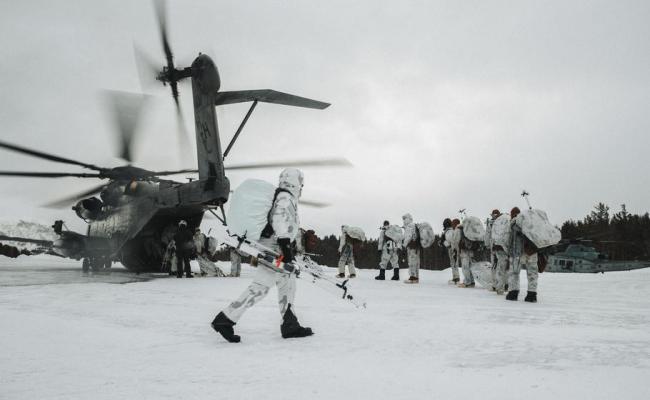Russia Amends Arctic Policy Prioritizing ‘National Interest’ and Removing Cooperation Within Arctic Council

President Putin discusses expansion of Russia’s territorial claims with the permanent members of the Security Council. (Source: Kremlin)
Announced by the Kremlin Tuesday, Russia revised its Arctic policy removing mentions of the Arctic Council, stressing the need to prioritize Russian Arctic interests, and striving for greater self-reliance for its Arctic industrial projects.
The hopes for cooperation with Russia in the Arctic continue to cool. Days after a U.S. diplomat stated that cooperation with Russia in the Arctic was now virtually impossible, the Kremlin published amendments to its Arctic policy. President Putin signed the decree earlier this week on 21 February.
The updated document places greater emphasis on Russian national interests in the region and removes specific mentions for cooperation within the Arctic Council.
While the original policy, published in March 2020, called for the “strengthening of good neighborly relations with the Arctic states” in the fields of economic, scientific, cultural and cross-border cooperation the amended version removes the above section and instead calls for the “development of relations with foreign states on a bilateral basis, […] taking into account the national interests of the Russian Federation in the Arctic.”

Original wording of Russia’s State Arctic Policy to 2035 published in March 2020. (Source: Kremlin)
The amended text also removes mentions of “the framework of multilateral regional cooperation formats, including the Arctic Council, the coastal Arctic "five" and the Council of the Barents Euro-Arctic Region.”
In the original policy the section on international cooperation, placed significant emphasis on work within “multilateral regional cooperation formats" for the purpose of building up economic, scientific and technological, as well as cultural cooperation. It did not make any mention of prioritizing Russian national interests.
In contrast, the wording of the revised document now places the country’s national interests in the Arctic ahead of work towards economic, scientific and technological, and cultural cooperation.
Just last week, U.S. military leaders emphasized that the Arctic was now Russia’s number one priority.

Updated wording of Russia’s State Arctic Policy to 2035 amended on 22 February 2023. (Source: Kremlin)
Independence from western technology
The updated version also places a greater emphasis on Russian self-reliance in the region. It calls for ensuring “import independence of the shipbuilding complex,” clearly a response to western sanctions which have affected Russia’s ability to order and purchase ice-capable gas and oil tankers at foreign shipyards.
The amended version of the policy calls for the ”development and modernization of shipbuilding and ship repair facilities for the construction and maintenance of ships navigating in the waters of the Northern Sea Route.”
In terms of energy supply for population centers and industrial facilities along the NSR the policy now calls for the use of domestically-built “low-power nuclear power plants.”
The first such facility, the floating nuclear power plant Akademik Lomonosov was towed through the Baltics and up the Norwegian coastline in 2018 to the Arctic town of Pevek to supply electrical power and residential heat.
We do not anticipate that Russia will change its behavior anytime soon.
A reaction to U.S. Comments?
The changes to Russia’s state Arctic policy and the specific removal of cooperation in the Arctic Council come just a week after U.S. State Department official Derek Chollet, explained that the U.S. will resume some activity in the Arctic Council sans Russia.
“Unfortunately, we do not anticipate that Russia will change its behavior anytime soon. Adjusting to this new reality forced upon us by Moscow, we resume the Arctic Council's projects not involving Russia,” he stated at the Wilson Center’s Polar Institute last week.
“Moscow's decision to invade its neighbor, an independent and sovereign state, makes cooperation virtually impossible for [the] foreseeable future.”
The change to its Arctic policy comes during the same week as Russia announced the suspension of the START nuclear arms treaty with the U.S.



